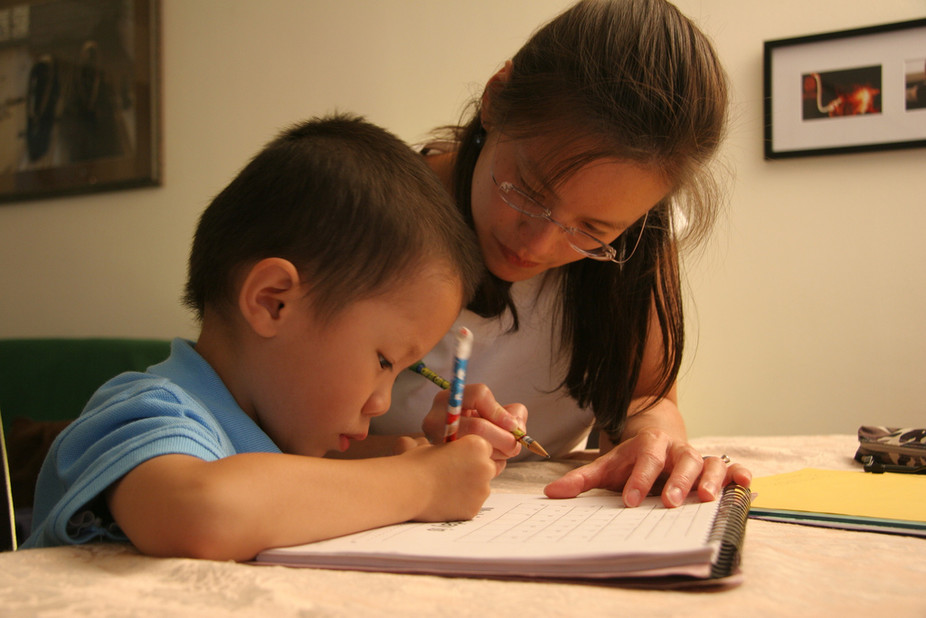Learning Apps for 3-year olds

Are you looking for learning apps, tools, and resources that you can use with 3-year olds? If so, we have you covered. Check out our list below. Let us know if there are any that we missed.
Toddler Toy Factory– With a focus on spelling, reading, and memory skills, children build and match toys in this app designed for children aged 1-7. Toddler Toy Factory comes with 10 free toys, with the option to purchase an additional 70 toys. There are three rooms in the app: Make, Find, and Ship. In the Make room, children select and drag letters into a machine to build words. When correct words are built, toys come out of the machine. In the Find room, children search through crates to find matching toys. When toys are matched, children can play with them or clean them up by putting them into another machine. In the Ship room, children put toys into barrels to practice counting. When full, the barrels can be shipped.
Super Why! ABC Adventures – This game encourages children to identify letters by the sounds they make. They also see words that start with or contain those letters. The game covers uppercase letters, lowercase letters, or a mix of both. Completing stages earns children stickers that they can use to decorate international scenes on a world map. The game generates in-depth reports for parents and teachers to monitor the children’s in letter identification.
Homer– If you’re looking for an interactive and interesting way to spark your child’s passion for reading, HOMER Reading is the answer. The app comes with thousands of lessons on sight words, ABCs, phonics, and many more to help your child build essential skills with a customized learn-to-read plan. Children love learning to read when they read what they live. It’s designed for 2- to 8-year-old kids.
Sesame Street Alphabet Kitchen – This is a word-formation game that focuses on three- and four-letter words. In the app, children help Cookie Monster bake by selecting vowels to form complete words, which come out either as either colorful words or images depicting the meaning of the word. The game starts with CVC combos and moves to more complex words such as those with “st” and “sh” starting or ending them.
Osmo Words – This is a letter recognition game. Children can play alone, in groups with children, or against one another. Difficulty levels adjust automatically based on performance; they can also be manually adjusted. Osmo Words setup requires the knowledge and experience of a grownup.
The Counting Kingdom – This game puts children into the role of castle defender. They find the sums of the number of monsters that are trying to invade the castle. If they give the correct answer, a magic spell is cast that destroys the beast. The monsters get closer with each failed attempt to provide a solution. The game gets progressively harder, encouraging children to continue to develop their counting skills.
LetterSchool – LetterSchool is a fresh perspective on teaching letter identification. The game guides children to start writing by merely tapping on the starting point, while the game completes the letter for them and ends with the child learning to write the letter. The game uses magic ink and writing instead of traditional ink to engage the children; initially, the game is set up with uppercase letters, but the teacher can change to numbers or lowercase letters.
Interactive Alphabet – This app teaches the alphabet and phonics by connecting images with objects. It has a lot of customizable features; for example, the explore mode lets children choose which letters to learn or when to progress. The tracing mode can be modified for right- or left-dominant children. Teachers and students can also add their pictures and voices to create unique flashcards.
Learn to Read Nok-Syllables– Learn to Read Nok-Syllables is geared for three- to seven-year-old children who are learning how to read. Learning to develop words syllable by syllable, your child will be rewarded through mini-games and positive reinforcement. There are lots of opportunities for children to progress to higher levels and play more difficult games. The app even includes a tournament mode after your child has mastered all the levels.
Little Matchups ABC Alphabet Letters and Phonics– Little Matchups ABC Alphabet Letters and Phonics is a matching game to help reinforce your little one’s alphabet skills. Children are impressionable and fun loving, and they need cute ways to learn. Loved by parents, kids, and teachers alike, this app will help your infant to four-year-old have fun and learn uppercase and lowercase letters. They will develop a firm basis for future learning in English, grammar, and reading that to carry them through life.
Monkey Preschool Lunchbox– Preschoolers love games and are the best at learning, so Monkey Preschool Lunchbox combines both these elements. Designed for two- to five-year-olds, this app has six games to teach colors, letters, counting, shapes, sizes, matching, and spotting the differences. Fun monkeys assist the child, and cute sounds and designs make it appealing to young eyes and ears. Children will also learn fruits and numbers. Virtual stickers provide positive reinforcement for a job well done.
Montessori Letter Sounds– Phonics is a critical skill and can be hard for teachers or parents to teach. Montessori Letter Sounds is an award-winning app that starts children on the path to reading in no time. Three-year-olds begin by playing I Spy, and five-year-olds finish with combining letter sounds and shapes. In between, children learn the alphabet. As children progress, they will earn small prizes and marbles that let them know they are doing a great job.
Montessori Numbers–Coupled with the Montessori Letter Sounds app, Montessori Numbers helps teach children the foundations of math. Three- to seven-year-old children can use this app to begin understanding numerology, numerals, numbers 0 through 100, quantifying, counting, and more. Children can play lots of activities and games that have multiple difficulty levels.
Moose Math– Designed for any three- to eight-year-old, Moose Math takes your child on a math adventure where they will have fun and learn. There are five activities in various locations around town. Hit up the Moose Juice Store to practice addition and subtraction, Puck’s Pet Shop to learn sorting, or the Lost & Found to get a better hang of geometry. The Dust Funnies and Duck Duck Moose characters in this app will help your child master math and crush Common Core Standards. There is even an option for parents or educators to receive a report card to track children’s progress.
My PlayHome– My PlayHome is the phone version of the classic toy, the dollhouse. Real life dollhouses are very limited with activities for the dolls (i.e., they can sit, walk around, sleep). However, My PlayHome allows children to have the dolls cook, drink, eat, travel, move things around, and even edit rooms with whatever they want. This app is simple enough that a baby can understand it but complex enough that an eight-year-old will enjoy it. This is the perfect application for any young child who loves to make believe and doesn’t want the limitations and restrictions of real-life toys when there is an entire world of fun and endless imagination.
Drive About: Number Neighborhood– Children explore this imaginary world that contains fun activities to help them develop their math skills. Activities include number identification and writing, counting, matching, and ordering. Suitable for children aged 5 and below.
Tic Toc Time– Using Tic Toc Time, students learn how to read a clock face by relating it to things they are already familiar with, such as the sun, shadows, night, and day. Developed for children aged 3-8, Tic Toc Time meets the Common Core State Standards for mathematics, including time telling for grades 1-3.





